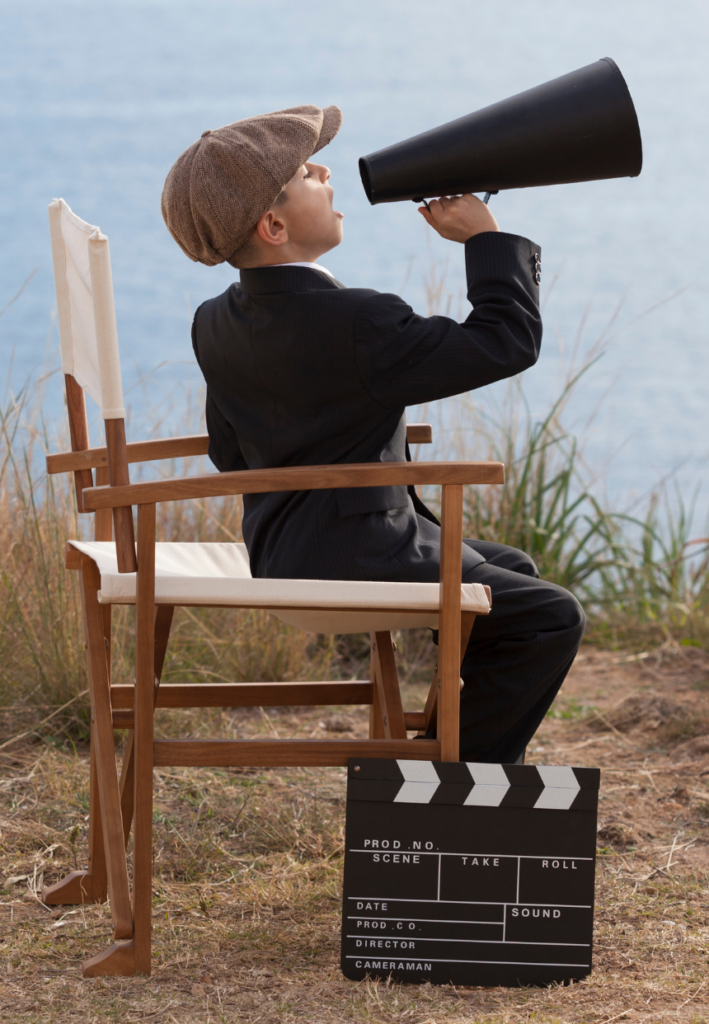6-WEEK DOCUMENTARY FILMMAKING
Who should attend? New and experienced filmmakers can benefit from this program.
WORKSHOP OBJECTIVES:
The educational objectives of the Six-Week Documentary Workshop are to teach students the Documentary Filmmaking craft and to instruct students through a strict regimen consisting of lectures, seminars, total immersion workshops, and supervised editing to excel in the creative art of documentary storytelling.
EXPECTED LEARNING OUTCOMES:
Skills learned as a result of successful completion of this workshop include:
- The ability to work independently and collaboratively in a high-pressure creative environment.
- The fundamentals of developing, producing and directing a short documentary.
- Experience working as a director, producer, cinematographer, sound mixer, and editor on student productions.
- An in-depth experience working with digital video cameras and sound recording equipment.
- Sufficient mastery of Final Cut Pro digital editing software to edit a short film of up to 10 minutes in length.
- Sufficient knowledge of sound design, multiple track laying, and sound mixing to complete and enhance the Final Documentary.
- Knowledge of aesthetic film theory, and documentary ethics, and experience with practical application of the same.
PROGRAM OVERVIEW:
The 6-week documentary workshop is an intensive program that combines in-class instruction and hands-on production workshops where students put into practice what they learned in the classroom.
During the first two weeks, students learn the basic tools of documentary filmmaking. They take classes in Producing, Directing, Camera, Lighting, Sound Recording, and Editing. They apply what they learned by creating a two-minute individual observational film, and by producing two short group projects in production workshops under the guidance of their instructors. Following production and post-production of each project, students screen their work with their classmates and instructors and engage in critiques and discussion.
Throughout the session, each student devotes time to developing and pre-producing his/her final documentary in and outside the classroom—a film of up to eight minutes in length with at least two tracks of sound. Students crew on their classmates’ final documentaries. They edit their projects using Final Cut Pro on Macintosh computers.
Production and Post-production hours outside of class time are considered separate from lab and lecture hours, however they are still necessary to successfully complete the workshop. The Academy recognizes, as should the students, that these hours will vary from student to student.
COURSE DESCRIPTIONS
Producing and Directing the Documentary
This hands-on producing and directing course is the spine of the six-week documentary program and establishes a foundation for all projects.
Through lectures and screenings, students explore documentary techniques, genres and styles. They learn to develop an idea from concept through post-production as they produce and direct a two-minute individual observational film, two group projects shot in the Documentary Production Workshop, and an individual final documentary on a topic of the student’s own choosing. Students will leave this course with a greater understanding of cinematic language in relation to storytelling, as well as the fundamentals of coverage, story structure, directing and line producing.
Camera and Lighting
In this course, students master basic camera and lighting skills in the digital video format, touching on technical details such as aperture, shutter speed, focus, frame rates, white balance, video latitude, gels, and filters. In hands-on lighting sessions, students learn to work with and enhance available and natural light situations, as well as traditional lighting for interviews and controlled situations. With the help of simple to more complex hands-on exercises, students become progressively more fluent with camera and lighting techniques, and begin to focus on the role cinematography plays in telling and enhancing non-fiction stories.
Sound
This course provides hands-on training with recording sync and non-sync sound using basic and most commonly used digital equipment. It emphasizes the importance of recording usable location sound for a smooth transition into post-production. This course raises and answers the questions: What do I have to record while shooting? How can I best record it? What sounds do I need for a successful mix? In post-production, students gain an understanding of sound design and its role in storytelling. They train in recording narration, laying multiple tracks, and sound mixing. They apply these skills to their Final Documentaries.
Documentary Production Workshop
All-day workshop sessions are group experiences that immerse students in a learn-by-doing environment. Students put into practice the concepts introduced in Producing and Directing the Documentary, Camera & Lighting, Sound, and Editing. Workshop I emphasizes observational filming, film language, and basic coverage; Workshop II highlights controlled situations such as shooting and directing the interview, lighting, and production sound. Students explore the cinematic coverage of a scene based on its structure and the dramatic needs of its key moments and thematic ideas. Workshop III takes place on location and emphasizes storytelling and coverage in an ‘uncontrolled situation.’
Editing
Documentary films often find their true forms in the editing room. This makes the editing process extremely important because a story may take a different shape after the footage is reviewed. In this course, students learn the fundamentals of Final Cut Pro editing while exploring the particular challenges of documentary storytelling. Some class hours are devoted to guiding students through the process of editing projects produced and shot in the Documentary Production Workshop, as well as the students’ Final Documentaries.
The program concludes with a guest speaking event and screenings of all final documentaries.
For more information, please contact Sabine Sighicelli
sabine.sighicelli@nyfa.edu.

